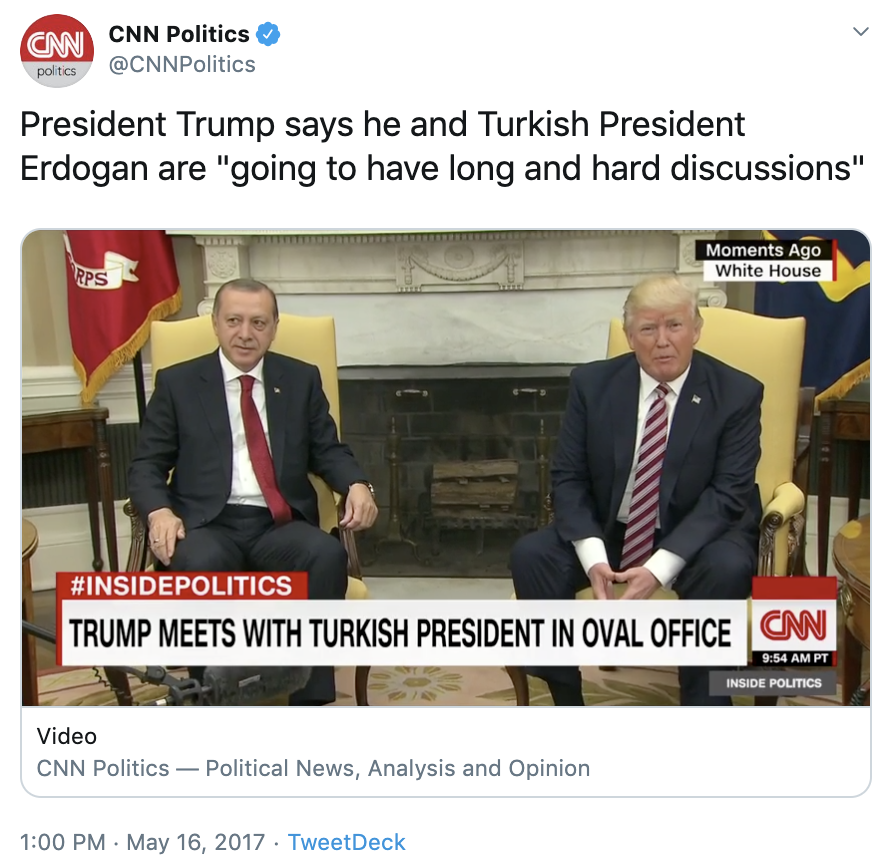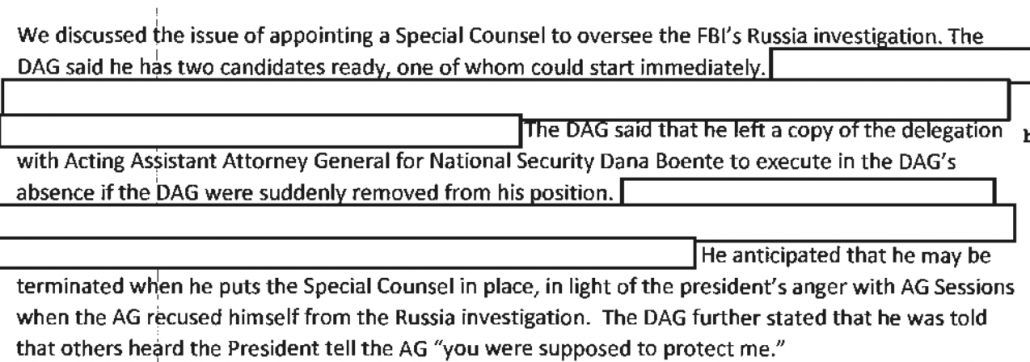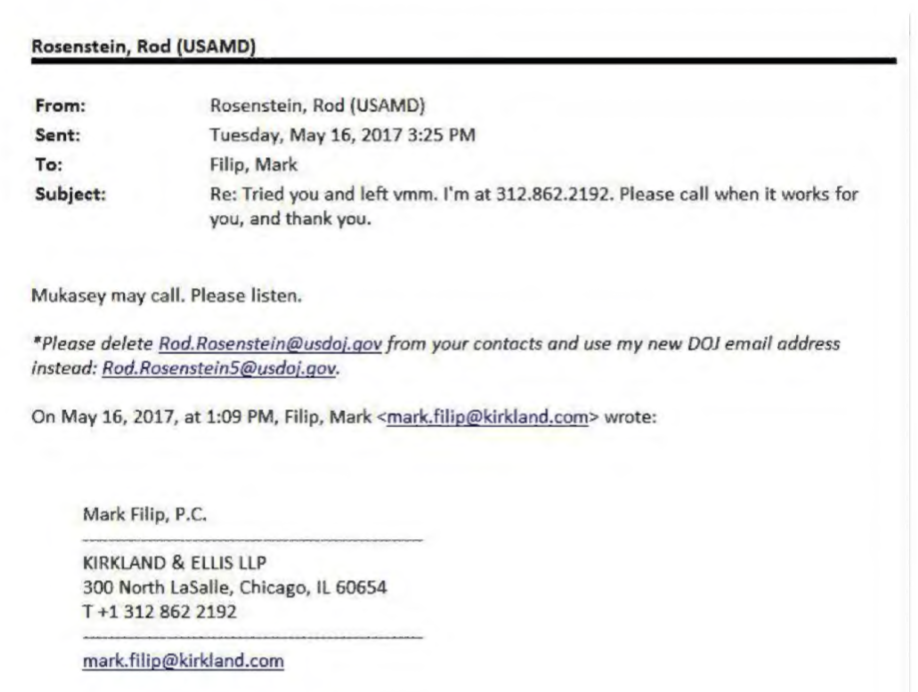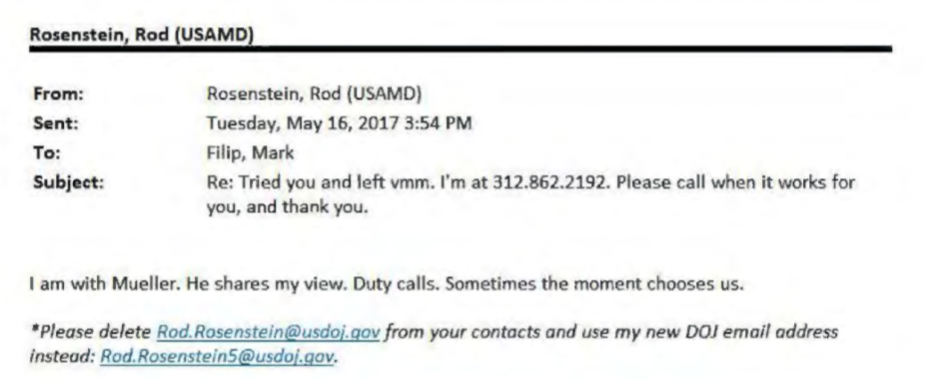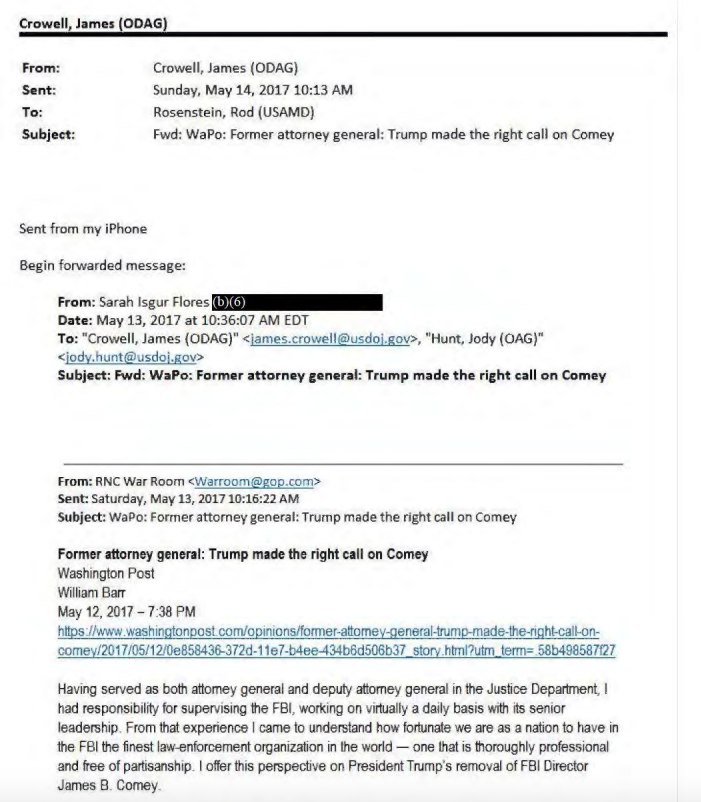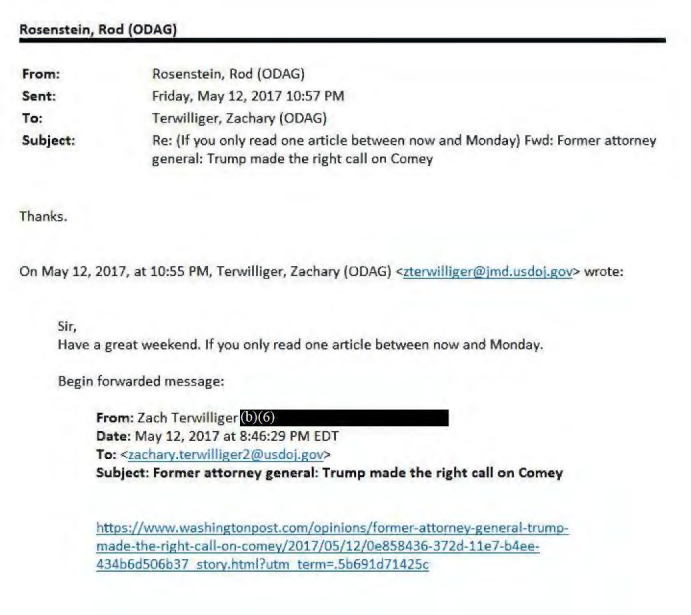Judicial Watch Reveals Reza Zarrab’s Lawyer May Have Pitched Rosenstein on Special Counsel Pick
I love when Judicial Watch liberates documents they think are damning but actually demonstrate that conspiracy theories are false, as they did when they liberated Bruce Ohr documents showing he actually helped the FBI vet the Steele dossier. Then there’s the recent release showing that current US Attorney George Terwilliger was pushing Bill Barr’s theory that Jim Comey deserved to be fired the weekend before Robert Mueller was hired.
But there’s something potentially more important in that batch.
The WaPo’s coverage of Rudy Giuliani and Michael Mukasey’s efforts to pressure Rex Tillerson to push DOJ to release Turkish money launderer Reza Zarrab contextualizes the fall 2017 meeting by recalling that Trump and Erdogan met on May 16, 2017
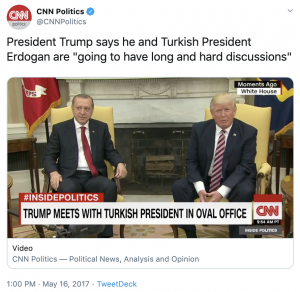
The two leaders finished their first meeting and performed their ceremonial handshake at about 1PM.
Just half an hour earlier, at 12:30 PM, Andrew McCabe had explained to Rod Rosenstein that he had opened an investigation into Donald Trump. The two then discussed Rosenstein’s thoughts about appointing a special prosecutor. Rosenstein said he was choosing between two candidates, one (who must be Mueller) who could start immediately.
At 1:09, former Deputy Attorney General Mark Filip (and Bill Barr colleague) called Rosenstein from his Kirkland and Ellis phone, left a message, and asked Rosenstein to call him.
At 3:25, Rosenstein wrote back and told him “Mukasey might call.” It’s unclear whether this is Marc or Michael Mukasey, but it doesn’t much matter, because Michael was already representing Zarrab and Marc was very very close to Giuliani.
In other words, within hours after Erdogan met Trump at the White House and asked for Zarrab’s release, someone effectively representing Zarrab appeared to be in touch with Rosenstein, who then suggested that whichever Mukasey it was call Filip.
The thing is, by all appearances, this Mukasey call pertained to question about hiring a Special Counsel. That’s because shortly thereafter, Rosenstein writes Filip back and tells him he’s going with Mueller (which suggests Filip may have been his other candidate).
If all that’s right, it suggests one of Zarrab’s lawyers may have weighed in on the Special Counsel decision just minutes after Erdogan requested Trump release him and (simultaneously) a key McCabe-Rosenstein meeting.
That’s not all that surprising. After all, the Mike Flynn investigation had already developed to include at least two of four strands, the lies about Russia and the lies about Turkey.
But then Rosenstein chose to appoint Mueller, not his other choice (who may have been Filip).
From that moment, Republicans were pushing the Bill Barr line. And Bill Barr is now in charge (and was, for the closure of the Mueller investigation). And that push may have had as much to do with Turkey as it did Russia.

